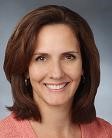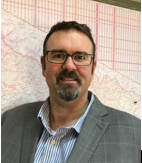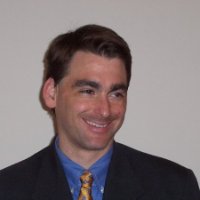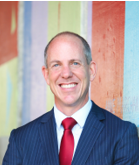Developing market systems and improving economic opportunities for youth are critical priorities for development practitioners. To do these well, we must continually learn and adapt, seeking new and better ways to achieve sustainable results. To foster learning and share knowledge about the innovative approaches we are using around the world, Chemonics is holding a company-wide innovation contest. We are asking our global workforce to share their experience implementing market and youth enterprise development models that are inclusive, adaptive, and sustainable, as evidenced by positive results, including changes in the knowledge, skills, attitudes and practices of their target stakeholders.
For the purposes of this contest, we are broadly defining innovative models as: (1) an existing model that is being used in a new context, (2) an existing model that is being used in a new way, or (3) something completely new.
Share ideas with your peers, be recognized for your work, and have the chance to win prizes!

Sharon D'Onofrio is the Executive Director of the SEEP Network. SEEP is a collaborative learning network with representatives in 160 countries worldwide. For over 30 years, SEEP members have served as a testing ground for innovative strategies that promote inclusion, develop resilient markets, and enhance the livelihood potential of the worlds’ poor. Sharon leads the development and execution of the network’s strategy and oversees services to members and relationships with organizational partners.

Brian King is an international development professional and experienced program manager with technical experience in value chain and private sector competitiveness interventions, entrepreneurship promotion and training, SME export promotion marketing, association capacity building, non-financial business development services, and improving MSME access to finance. He is currently the Chief of Party for the USAID Zrda Activity in Georgia, a $19.7 million micro, small, and medium-size enterprise (MSME) development project, with a focus on agricultural and tourism value chains. Prior to joining Chemonics in Georgia, Brian led Mercy Corps’ market development portfolio in Myanmar, and has also served as a Country Director in Tajikistan and Liberia. Before moving into the development space, Brian worked in corporate finance for a Fortune 100 telecommunications firm. In his almost 15 year development career, Brian has lived or worked in Romania, Mongolia, Liberia, Tajikistan, Myanmar, Georgia, Nigeria, Indonesia, Ethiopia, and Lebanon. He earned his BA in Economics from the University of Virginia and his MSc. in Environmental Economics from the University of London.
Kristin O’Planick is a Market Systems & Enterprise Development Specialist in USAID’s Bureau for Economic Growth, Education, & Environment. She provides assistance to market systems, enterprise development, and youth employment programming. She currently manages Microlinks.org (soon to be Marketlinks.org!) and the Trade & Competitiveness Activity. She previously managed the Leveraging Economic Opportunities project. Ms. O’Planick has nearly two decades of international development experience across all regions and across a variety of technical areas including market systems, enterprise and livelihoods development, workforce, food security, agribusiness, rural finance, and sustainable tourism. Previously, Ms. O’Planick managed USAID-funded economic development projects for Chemonics International, including a long-term post in Egypt. She served as a Peace Corps Volunteer in Guinea. Ms. O’Planick earned an MBA with distinction from the Johnson School at Cornell University.

Greg Jacobs is a proven project leader and consultant with 20 years of global experience in international and local economic development. Demonstrated ability to oversee complex programs, solve development challenges and lead teams to success. Has worked on five continents in more than 25 countries. Specialized in economic development with broad technical experience and consulting activities in more than 15 countries in value chain work, public private partnerships, SME development, finance, market linkages, rural development and local capacity strengthening. A diverse consulting background along with extensive practice designing, implementing, and managing successful development activities for the US Government (USAID and MCC) and clients such as the World Bank, Asian Development Bank, and the IFC. Speaks advanced Spanish and Czech as well as former competencies in French, Armenian and Oshiwambo.

Tim Nourse has worked to improve economic opportunities for marginalized populations in developing country and post-conflict contexts for the last twenty years. He has designed and implemented youth development projects that increase young people's ability to start and grow businesses, or find and retain meaningful work; led successful financial inclusion programs serving rural and urban clients with group and individual products through NGOs, credit unions, banks, and finance companies; and developed integrated enterprise and financial services programs for youth, women, farmers, and other marginalized groups.
Carey Utz works in the Agency Youth Coordinator's office at USAID supporting youth programming across sectors and missions. Carey has consulted for Mercy Corps, Creative Associates International, UNICEF, and the Inter-Agency Network for Education in Emergencies with a focus on non-formal education and TVET for youth, psychosocial support, and trauma-informed programming. She has conducted research studies in DRC and Ghana on food security and smallholder farming and previously worked as an early childhood teacher and teacher director in the Bronx. She holds an Ed. M in International Education Policy from Harvard, an M.S. in Early Childhood Education from Hunter College, and a B.A. in International Relations and French from the Ohio State University
Marcos Moreno is an agriculture and youth development expert with more than 25 years of experience, including 15 years at senior management levels, creating sustainable economic opportunities for the next generation via agribusiness development projects in East Africa, Asia, and Latin America. He is currently chief of party for the USAID Feed the Future Uganda Youth Leadership for Agriculture Activity – USAID’s flagship youth economic development program in east Africa. Throughout his career, he has combined agricultural knowledge with innovative business expertise to link private and public sector resources to benefit target populations, including youth and women; create viable, market-driven economic opportunities along key value chains; and promote sustainable skills and strengthen livelihoods. He has extensive experience in identifying ways to integrate female and young farmers to add value to agricultural sectors and key value chains in Kenya, Tanzania, Rwanda, Ethiopia, Bolivia, Mexico, and Colombia.
Nancy Taggart has twenty years of experience directing and managing international education, youth workforce, and gender programs in Africa and the Middle East. Ms. Taggart is currently a Sr. Youth and Workforce Advisor in the Education Office at USAID in Washington DC. Prior to USAID, she worked at Education Development Center (EDC) where she was the Youth Technical Team Leader in the International Development Division. From 2010-2012, she served as the Deputy Director of the EQUIP3 Program, a USAID-funded global mechanism that supported youth education and training projects. Throughout her career, Ms. Taggart has led youth and workforce programs for several international non-government organizations and has authored research on the topics of gender, technology and workforce. She holds an MA from Columbia University’s School of International and Public Affairs and a BA in History from Northwestern University. She lives in Washington, DC.
The Economic Growth and Trade and Education and Youth Practices are excited to announce an Innovation Contest, open to all Chemonics staff around the world. We are eager to learn from you about the innovative, successful (and not so successful!) youth enterprise development and market development models you are using in your projects. Four winning entries will be selected by Chemonics global staff and by subject matter experts from USAID, partners, and Chemonics. An innovative model can be (1) an existing model that is being used in a new context, (2) an existing model that is being used in a new way, or (3) something completely new.
Identify innovative youth enterprise and market development models being used by Chemonics projects around the world
Build an understanding of why some models have been successful and why others have failed to result in the desired impact
Enable peer-to-peer knowledge exchange amongst Chemonics global workforce
Encourage adoption of new and innovative youth enterprise and market development models by Chemonics project teams, through development and distribution of tools and resources related to models featured in contest entries.
We want to hear about the models that you have used, how you used them, and why they worked. If they did not work as you expected them to, we want to know how you adapted the models to achieve the intended results. By sharing both our successes and challenges, we can help each other improve our work, achieve greater results, and inspire our colleagues on other projects to try something new. The Enterprise & Market Development Innovations contest has two tracks:
Track #1: Youth-specific enterprise development models
Track #1 is for models that specifically target youth (as defined by your project) entrepreneurship and/or youth employment. The models may include any combination of hard skills, soft skills, government training programs, private sector training initiatives, internships, apprenticeships, mentoring, and more. Models may be specific to urban or rural areas, or may be broad based. Models may be influenced by models in other countries or projects or they may be brand new pilot activities.
Track #2 is for models that specifically target the development of market systems in which micro, small, and medium enterprises (MSMEs) operate. The models should address systemic constraints and create an environment that fosters MSME growth in domestic and/or international markets. These models may address any combination of business services, market linkages, end markets, input and technical support services, rules and incentives, the physical environment including infrastructure, and cultural, political, and geographic factors. Models may be influenced by models in other countries or projects or they may be brand new pilot activities.
All Chemonics-implemented project teams are eligible to submit entries. Contest submissions should be prepared and submitted by project employees who have worked directly on the featured enterprise and market development models on the current project. A project team may submit more than one submission, but each submission should feature a different model. If the entry is selected for award, the winning project team will nominate two project staff to represent the model in Washington, D.C. The nominees should also be employees who have worked directly on the feature enterprise and market development model.
How will the winners be selected?
To be eligible for prize winning, entries must meet the following basic requirements:
The entry must be submitted by a Chemonics-implemented project team
The content of the entry must align with one of the two contest tracks
All sections of the submission form must be fully completed
The entry must be submitted by the closing date and time
All eligible entries will be reviewed by two groups:
Four winning entries will be selected as follows:
|
|
Track #1: Youth-specific enterprise development models |
Track #2: Market systems development for MSME growth models |
|
Peer Voters |
Winning entry #1 |
Winning entry #2 |
|
Technical Expert Judges |
Winning entry #3 |
Winning entry #4 |
The final determination of the winners will be made at the sole discretion of Chemonics. Scores and feedback from Chemonics will not be shared.
|
Criteria |
Description |
|
The design of the youth-specific enterprise development model or market systems development model |
The model’s design and implementation is inclusive, and sensitive to issues faced by both men and women, and marginalized populations. It incorporates good practices such as market facilitation, incorporates fundamentals from leading frameworks such as positive youth development and collaborating, learning, and adapting (CLA). It effectively utilizes technology solutions, and can be scaled up. |
|
Local ownership and sustainability |
The model is sustainable or on the path to sustainability, has local stakeholder ownership/buy-in, and does not rely solely on donor project funding. |
|
Challenges and lessons learned |
The model includes feedback loops, robust monitoring and evaluation, and an iterative design process that enables adaptation at any point in time during implementation. |
|
Impact |
The model has demonstrated and inclusive impact (i.e. changes in knowledge, skills, attitudes and practices of target stakeholders, including job attainment, income growth, value addition, increased productivity, etc.). |
Chemonics will award the following prizes:
For all participants:
For each of the four winning submissions:
Click the orange ACCEPT CHALLENGE button above to register
Once you have registered, you will see two new orange buttons. Select the appropriate submission form:
Submissions must be made online (only), via upload to the HeroX.com website, on or before 11:59 pm ET on February 16, 2018. No late submissions will be accepted.
**Please note that this is an internal competition, and this link should not be shared outside of the company.**
Questions? Please email EconOppsContest@Chemonics.com